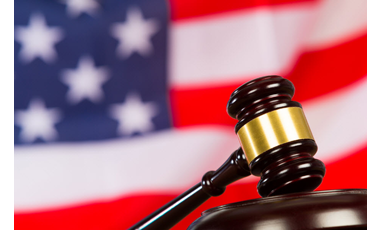Can US lawyers be trusted to regulate themselves?
April 14th, 2017

The following is part of on-going series of articles which examines the role of lawyers in facilitating money laundering. Start the series here.
As discussed earlier in this series, last year’s 60 Minutes segment exposing the preliminary advice given by several US lawyers on how to anonymize illicit funds from an African mining minister made clear that facilitating money laundering is not just a risk for lawyers in Panama.
Leaving aside the potential legal consequences of such advice, many viewers probably assumed that the legal community would immediately purge their ranks or at least sanction them for further bringing our industry into disrepute. Should be a simple enough case to argue, one reasons, even for us corporate attorneys whose litigation skills are gleaned from primetime TV. Rule 1.2 of the ABA’s Model Rules of Professional Conduct (right there at the top!) prohibits lawyers from counseling a client to engage, or assist a client, in conduct that the lawyer knows is criminal or fraudulent.
Two distinguished legal ethicists argued as much in a legal opinion to Global Witness stating that the conduct of three of the lawyers investigated did not “comply with the professional responsibilities of lawyers asked for assistance with potentially unlawful transactions”:
- Under the ethical rules of New York and every other American jurisdiction, lawyers are prohibited from counseling or assisting clients in illegal or fraudulent activity…. Complying with the prohibition entails reasonable and good faith efforts to ascertain facts needed to determine the extent to which the assistance sought would further illegality. It also requires communicating clearly to a client, or to any prospective client that the lawyer advises, a refusal to assist in illegal activity when it appears that the client or prospective client contemplates using the lawyer’s services in such activity.
But as with any good legal argument, there are those that argue the opposite side. An expert engaged to advise on behalf of two of the profiled lawyers (including the former ABA president) argued that lawyers should not be required to accuse prospective clients of violating the law at a preliminary meeting before trust can be built. “A lawyer’s demonstrated willingness to trust the prospective client may in turn encourage the client to trust the lawyer and be candid,” thereby resulting in more effective representation.
Sadly the rules associated with such discussions are not so clear, and some argue that the legal industry wants it this way. As one of the lawyers stated in the 60 Minutes segment, “We make the laws, and when we do so, we make them in the way that’s advantageous to the lawyers.”
In 2008, the Financial Action Task Force (FATF), an inter-governmental body which promotes measures to combat money laundering and terrorist financing, issued guidance (the Lawyer Guidance) for lawyers to take a risk-based approach to many AML issues. The Lawyer Guidance recommends, for example, that attorneys perform due diligence before onboarding clients and analyze the source of client funds. Politically Exposed Persons (PEPs) and certain services should be treated as high risk, including services in which attorneys “handle the receipt and transmission of funds through accounts they actually control” and “services to conceal improperly beneficial ownership from competent authorities.”
The 2008 Lawyer Guidance originally refused to extend prior FATF Recommendations relating to “suspicious transaction reports” (STRs) to lawyers. However, by 2012 the FATF went further and recommended that lawyers and other “designated non-financial businesses and professions” (DNFBPs) “should be required to report suspicious transactions” similar to financial institutions when engaging in certain financial transactions.
Many countries have adopted legislation or regulations in accordance with the FATF Lawyer Guidance. The US legal industry has never been as eager. Indeed, the ABA acknowledges that it engaged in intense debate with the FATF in making sure that the guidance “did not undermine the attorney-client privilege or the duty of client confidentiality or otherwise impede the delivery of legal services generally.” The FATF eventually adopted an Interpretative Note which provides that lawyers “are not required to report suspicious transactions if the relevant information was obtained in circumstances where they are subject to professional secrecy or legal professional privilege.”
One US lawyer who worked with the FATF as an ABA representative pointed to the view in common law countries (such as the US and UK) of lawyers as independent “guardians of the personal freedoms” in comparison to civil law countries (such as France and Germany) which view them more as “facilitators and functionaries.” He argued that any effort by the FATF to push for broader application of due diligence requirement and suspicious transaction reporting would “threaten the integrity of core principles of the US legal system, including the attorney-client privilege, the duty of client confidentiality, the duty of client loyalty, the independence of lawyers, and the historical prerogative of state regulation of lawyers….”
Instead of adopting the FATF Lawyer Guidance, ABA released Voluntary Good Practices Guidance in 2010 to assist in design and implementation of a risk-based approach that is “not intended to be, nor should it be construed as, a statement of the standard of care governing the activities of lawyers.” The ABA also hoped to create a bulwark against the pressure on the US government by the FATF, OECD, IMF, World Bank and United Nations to adopt legislation implementing the FATF Lawyer Guidance.
The Voluntary Good Practices do not go as far as those proposed by the FATF. This has resulted in the US falling behind Europe and some other jurisdictions in this aspect of the fight against money laundering. And there is no question that the US legal community has lost the moral high ground.
This was made clear when the American Bar Association, after years of lobbying against the FATF, was forced to rationalize the actions exposed by Global Witness of its ex-president’s friendly demeanor and preliminary advice to a likely money launderer. The ABA argued that it has insisted that lawyers at all times must act with integrity and uphold the rule of law, while it simultaneously threw aspersions at the Global Witness “imposter.”
The Global Witness exposé could be seen as the direct result of such self-regulation. One commentator writing for The American Lawyer went for the jugular: “[T]he bar has for many years stymied changes to ethics and law urged by the intergovernmental Financial Action Task Force in favor of an “educational” approach against money laundering. What Global Witness exposed is the worthlessness of the ABA’s Voluntary Good Practices Guidance for Lawyers to Detect and Combat Money Laundering.”
No legal or accounting advice is provided hereunder and any discussion of regulatory compliance is purely illustrative. The views expressed herein are the author’s and do not reflect the views of NICE Actimize.




